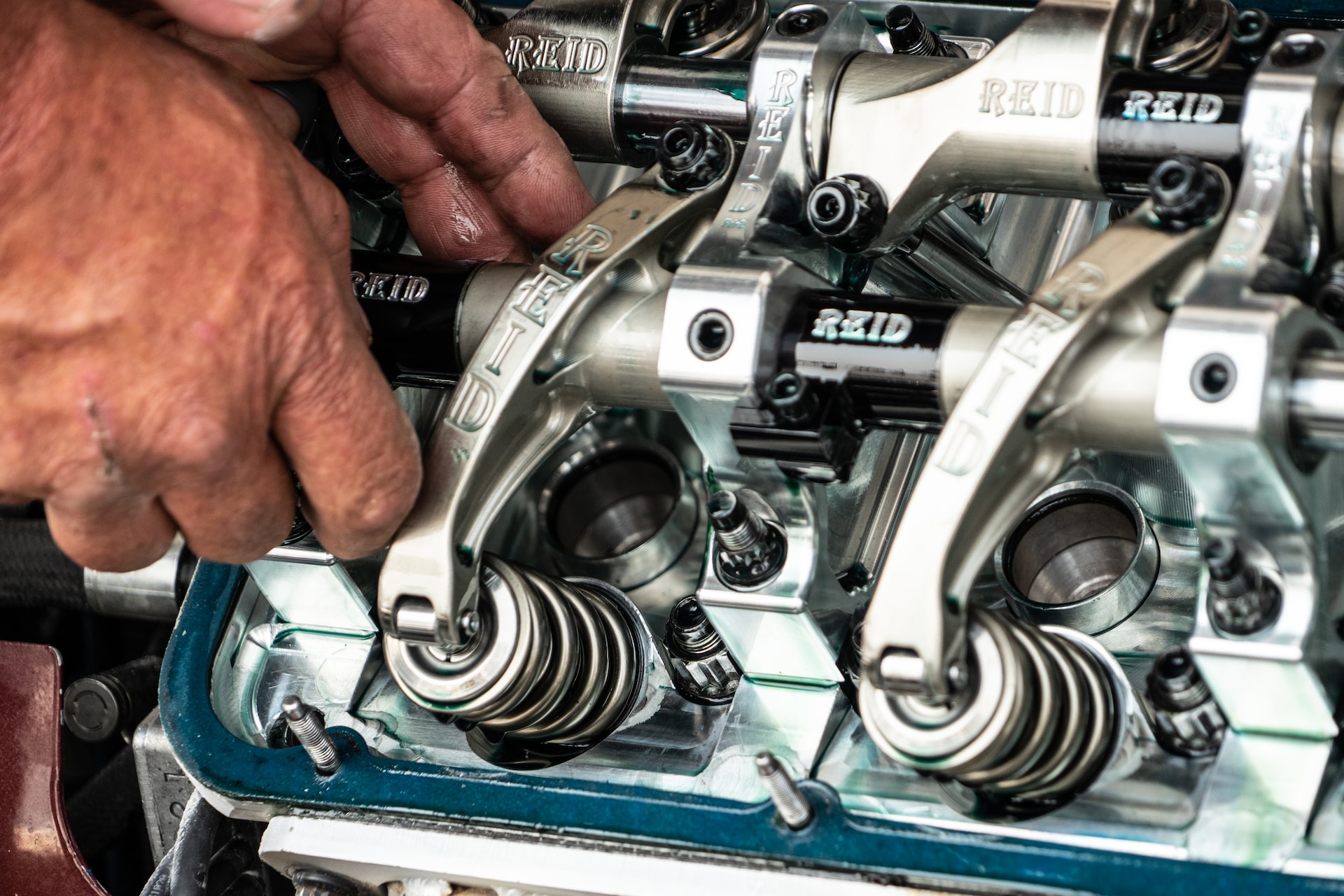Last Updated on: 21st November 2023, 09:34 pm
The heart of every vehicle is its engine—a complex piece of machinery designed to convert fuel into the motion that powers your car down the road. But like any heart, it needs regular check-ups to ensure it’s functioning at its best. This is where engine maintenance comes into play.
Engine maintenance is more than just an item on your to-do list; it’s a crucial aspect of owning a vehicle. Regular maintenance can help your car perform better, last longer, and maintain its value. But more importantly, it can save you from the stress and high costs of unexpected breakdowns and repairs.
Understanding the importance of regular engine maintenance is essential for every car owner. Not only can it help you avoid costly repairs, but it can also provide you with peace of mind knowing that your vehicle is in good working condition. Whether you’re a seasoned car enthusiast or a novice driver, gaining knowledge about regular engine maintenance will undoubtedly equip you with the tools needed to keep your car running smoothly for years to come.
Importance of Regular Engine Maintenance
When we talk about the importance of regular engine maintenance, we are essentially referring to the myriad of benefits it brings to both your vehicle and your wallet. The advantages are wide-ranging and significant, making it a non-negotiable task for every car owner.
One of the most immediate benefits of regular engine maintenance is improved fuel efficiency. A well-maintained engine runs more smoothly and wastes less fuel, which means you’ll be making fewer trips to the gas station. This can result in substantial savings over the course of a year.
Regular engine maintenance also extends the lifespan of your vehicle. Just like how regular exercise and a good diet can keep a human heart healthy and prolong life, regular maintenance keeps your car’s “heart”—its engine—in top shape and can add years to its life. This means more time before you need to think about buying a new car, further saving you money.
Moreover, regular engine maintenance reduces the likelihood of unexpected breakdowns. Nothing is worse than being stranded on the side of the road because your car decided to give up on you. Regular check-ups can help identify potential problems before they become major issues, keeping you safe and your vehicle reliable.
Lastly, preventive maintenance can lead to significant cost savings in the long run. While it may seem like you’re spending more money upfront on regular maintenance, this pales in comparison to the cost of major repairs that could have been avoided. For example, replacing a timing belt as part of routine maintenance is far less expensive than repairing the extensive damage that can be caused by a timing belt failure.
In essence, regular engine maintenance is an investment. It’s an investment in the efficiency and longevity of your vehicle, in the prevention of unexpected breakdowns, and in the saving of your hard-earned money. By maintaining your engine, you’re ensuring that your vehicle serves you well for many miles down the road.
What Regular Engine Maintenance Involves
Regular engine maintenance is a multifaceted process involving a series of checks and actions that ensure your engine’s optimal performance. Below are some of the key elements of a regular maintenance schedule.
Oil Changes: Engine oil is the lifeblood of your car. It lubricates the moving parts of your engine, reducing friction and preventing overheating. Over time, however, the oil can become contaminated with dust, dirt, and debris from the engine and environment. This not only reduces its effectiveness but can also cause wear and tear on your engine. Regular oil changes—typically every 3,000 to 5,000 miles—ensure that your engine is always lubricated with clean oil, protecting it from damage and improving its efficiency.
Air Filter Checks and Replacements: Your car’s air filter prevents harmful debris from entering your engine. A clean air filter allows your engine to breathe easier, which can lead to improved fuel efficiency and performance. Conversely, a dirty or clogged air filter can restrict airflow and reduce your engine’s performance and longevity. Regular checks and replacements—usually every 12,000 to 15,000 miles—keep your engine running smoothly and efficiently.
Cooling System Maintenance: Your car’s cooling system plays a crucial role in preventing your engine from overheating. This involves a mix of coolant fluid and water, which absorbs heat from the engine and dispels it through the radiator. Over time, the coolant can degrade and become less effective, leading to the risk of your engine overheating. Regular checks and coolant replacements—typically every 30,000 to 50,000 miles—help to keep your engine at the right temperature, preventing damage and breakdowns.
Regular Inspections: Beyond these specific tasks, regular engine maintenance should also involve general inspections of your engine. This can help you catch any potential issues early before they become more serious—and more costly—problems. Check for any leaks, listen for any unusual sounds, and pay attention to any changes in your engine’s performance.
Each of these maintenance tasks plays a crucial role in the overall health and efficiency of your engine. You can learn more about these and other maintenance tasks at Engines Work.
The Role of Engine Oil in Maintenance
Engine oil plays a pivotal role in maintaining a healthy engine. It’s not just about keeping the engine running—it’s about keeping it running well and for as long as possible.
Lubrication: At its core, engine oil is a lubricant. It creates a thin film between metal surfaces, preventing direct contact between them. This reduces friction within the engine, which can otherwise cause wear and tear on the engine parts, leading to premature failure.
Heat Reduction: Engine oil also plays a crucial role in heat reduction. As your engine operates, it generates a significant amount of heat due to friction and combustion processes. Engine oil helps absorb and distribute this heat, preventing overheating that can damage the engine components.
Contaminant Removal: Over time, engine oil can collect dust, dirt, and other contaminants that enter the engine. These particles can be harmful to the engine if left unchecked. The oil helps to suspend and carry away these impurities, preventing them from settling in the engine. The oil filter plays a crucial role in this process, trapping the larger particles that are suspended in the oil and preventing them from circulating back into the engine.
Choosing the right type of engine oil for your vehicle is just as important as regular oil changes. Different engines require different types of oil, with factors such as the vehicle’s age, mileage, and manufacturer’s specifications playing a role in what type of oil you should use. Using the wrong type of oil can reduce your engine’s efficiency and potentially cause damage.
The timing of oil changes is another critical aspect of engine maintenance. While the traditional recommendation has been to change your oil every 3,000 miles, many modern cars can go between 5,000 and 10,000 miles depending on the type of oil used and the vehicle’s operating conditions. Always refer to your vehicle’s owner’s manual for the manufacturer’s recommendations.
In essence, engine oil is the lifeblood of your car’s engine. It lubricates, cools, and cleans the engine, ensuring that it runs smoothly and efficiently. Regular oil changes, using the right type of oil, and timely filter replacements are all critical aspects of maintaining a healthy engine.
The Role of Transmission Fluid in Maintenance
While engine oil is essential to the health of your engine, transmission fluid is equally important for the overall health of your vehicle. It plays several critical roles in ensuring that your car’s transmission—the component that transfers power from the engine to the wheels—functions optimally.
Lubrication: Similar to engine oil, transmission fluid serves as a lubricant for the moving parts within your vehicle’s transmission. This reduces friction between the components, preventing premature wear and tear.
Heat Management: As your transmission operates, it generates heat due to friction and the heavy workload it carries in transferring power from the engine to the wheels. Transmission fluid helps to absorb and carry this heat away, maintaining an optimal transmission temperature and preventing overheating, which can lead to serious damage.
Transmission Operation: In automatic transmissions, the fluid also plays a role in the operation of the transmission itself. It creates the hydraulic pressure needed to shift gears and operates the transmission’s clutches and bands. In manual transmissions, it helps lubricate the gears.
Just as with engine oil, using the right type of transmission fluid is crucial. Different vehicles and different types of transmissions (automatic vs. manual) require different types of transmission fluid, and using the incorrect type can lead to decreased efficiency and potential damage. Your vehicle’s owner’s manual will specify the correct type of transmission fluid to use.
The timing of transmission fluid changes is also important. While there’s no universal standard, a typical recommendation is to change the transmission fluid every 30,000 to 60,000 miles. However, this can vary depending on factors such as how you drive, the conditions you drive in, and the manufacturer’s recommendations.
Warning Signs That Your Engine Needs Maintenance
Even with regular maintenance, there may be times when your engine requires additional attention. It’s important to be aware of the signs that might indicate a need for maintenance or repair. Ignoring these signs could lead to more serious—and more costly—issues down the line.
Check Engine Light: One of the most obvious signs that your engine needs attention is the check engine light. When this light comes on, it means the car’s computer has detected an issue that could affect the vehicle’s performance. The problem could be as simple as a loose gas cap or as serious as a failing catalytic converter. If this light comes on, it’s best to get your vehicle checked by a professional as soon as possible.
Strange Noises: Your car shouldn’t be making strange noises. If you hear anything unusual—such as knocking, popping, hissing, or whining—it’s a good idea to have it checked out. These noises could indicate a variety of issues, from minor problems like a loose belt to more serious issues like engine damage.
Decreased Fuel Efficiency: If you notice that you’re making more frequent trips to the gas station, it could be a sign that your engine isn’t running as efficiently as it should be. This could be due to a number of issues, such as a clogged air filter or failing spark plugs.
Performance Issues: If your car isn’t performing as well as it used to—such as slow acceleration, difficulty starting, or stalling—this could be a sign that your engine needs maintenance. These issues could be caused by a variety of problems, from a dirty fuel system to a failing sensor.
Unusual Smells: If you notice an unusual smell—such as the smell of gas, burning oil, or sweet syrup—this could be a sign of an engine issue. These smells could indicate a variety of issues, from a gas leak to an overheating engine.
If you notice any of these signs, it’s important to get your vehicle checked by a professional as soon as possible. While some issues may be minor, others could indicate a serious problem that needs immediate attention. Regular maintenance can help prevent many of these issues, but it’s always important to be alert to changes in your vehicle’s performance and to take action when necessary.
Conclusion
The engine is the heart of your vehicle, and just like your heart, it requires regular check-ups and maintenance to function at its best. Regular engine maintenance is an investment—an investment in better performance, prolonged vehicle lifespan, reduced risk of breakdowns, and significant cost savings in the long run. It involves a variety of tasks, from regular oil changes to air filter replacements and cooling system maintenance.
Engine oil and transmission fluid play crucial roles in keeping your vehicle running smoothly. They lubricate the moving parts, reduce friction, manage heat, and even help in the operation of the transmission. Using the right type and changing these fluids at recommended intervals is integral to maintaining a healthy engine and transmission.
While regular maintenance can prevent many issues, it’s essential to stay alert to the signs that your engine may need additional attention—such as a check engine light, strange noises, decreased fuel efficiency, performance issues, or unusual smells. Recognizing these signs and acting promptly can save you from costly repairs and potentially serious damage.
Owning a vehicle is a significant responsibility, but by understanding and implementing regular engine maintenance, you can ensure that your car serves you reliably and efficiently for many miles to come. If you haven’t done so recently, consider this a friendly reminder to schedule your next routine maintenance check—it’s a small step that can go a long way in maintaining the health of your vehicle.







